Breaking
‘Why Nigeria is recording more COVID-19 cases, deaths’
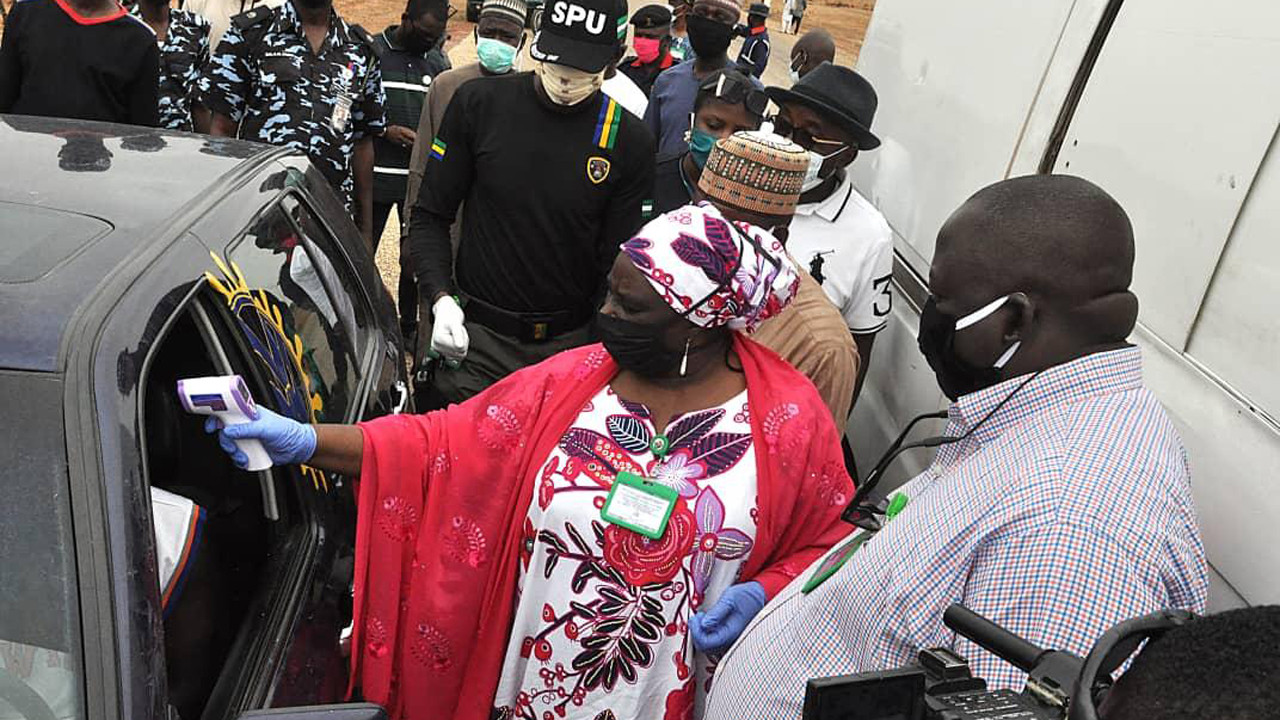
A virologist and Chairman, Expert Review Committee on COVID-19, Prof. Oyewale Tomori yesterday attributed the rise in the coronavirus cases and deaths in the country to what he described as a premature easing of lockdown measures by the federal and state governments.
He noted also that the increase in the testing capacity of the Nigeria Centre for Disease Control (NCDC) had helped in discovering more cases of infection.
In an interview with The Guardian, Tomori, a World Health Organisation (WHO) consultant and pioneer Vice-Chancellor of Redeemer’s University, insisted that it was a mistake to have eased the lockdown on May 4. He said the Federal Government might be forced to really lock down the nation.
Tomori, who is also the Chairman, Expert Committee on Polio and Immunisation in Nigeria, faulted a situation where some state governments, including Kogi and Cross River, are allegedly working contrary to the laid down measures by the NCDC. He called for a national coherence among various tiers of government.
He said: “The premature easing of lockdown by our government may be taking us out of the enclosure of life to the freedom and freeway of COVID-19 death. One is forced to think that under this worsening situation, our government succumbed to pressure as if it is saying to the people, ‘Okay, so you don’t want lockdown to go on. Remember, you did not comply with the guidelines, under lockdown, you are on your own’. Like Pilate, it is as if the government has washed its hands off the COVID-19 issue. At the end of this current mini-lockdown, it is sure that the number of cases will increase and if the citizens fail to comply, the government may be forced to really lock down the nation. A week into the easing of the lockdown, our positive cases now stand at 4,399.
“It was a mistake to have eased the lockdown on 4th May. May be the government should have improved upon its performance on the palliatives, improving the distribution in an equitable manner. It should have appealed to the citizens to improve compliance with hygiene and other guidelines to protect life.
“The government should have made the people realize that it is not the government that will die from COVID-19, but the individual Nigerian. We have a choice to make: let the COVID-19 hold its sway and have its way until we achieve the desired high immunity (with consequent high morbidity and mortality), or we return to total lockdown provided that our people will strictly comply with the guidelines of handwashing, safe distancing and avoidance of congregating in large groups and the government will vastly improve on alleviating the suffering and hunger pangs of the people.”
On the higher testing capacity of the NCDC, the virologist said:“Now we are beginning to know the magnitude of our problem and only then can we plan appropriately.
“Without testing, we will not know the number of people infected with COVID-19. Without testing and with absence of data, we will be instituting control measures blindly, akin to blindly fighting a raging fire. Testing helps us to understand the pandemic, the temporal, the how and the direction in which the pandemic is spreading. It also helps us to be pro-active in organizing our response and mounting preventive measures.
“To better interpret our data on confirmed cases, we must know how much testing for COVID-19 we are conducting. The message of the WHO is test, test, and test. The more tests conducted, the easier it is to track the spread of the virus and reduce transmission. Many countries followed the advice, identifying a greater number of cases at an earlier stage, isolating infected individuals, and limiting the spread of the disease. An example is New Zealand which was conducting an average of 1,690 tests per million of her population.
“According to the NCDC, as of May 10, we had conducted only 23,835 tests, at the rate of approximately 120 per million of our population. Unfortunately, testing capacity around the world is now fully stretched, and it is very difficult to get an adequate number of test kits, resulting in many infections going undetected.”
Tomori faulted the claim by some states, including Kogi, that there is no case of the virus in their domain.
“It is disheartening that we have a situation of lack of coherence and absence of collaboration among the different arms of our government. This is democracy in disarray, turning executive discipline into executive defiance. The fight against COVID-19 is a war for our health and national social and economic security, a war to be handled with a collective determination. This is a time for the mature use of power..”
On how to effectively tackle the pandemic, Tomori said: “We need to do a better analysis of the results we are getting from the labs. With a short supply of test kits, the turnaround time of lab results is becoming worrisome. For example, when we report that we have 200 positive tests in one day, we need to break down the results according to the dates of sample collection. The case is positive not on the date the result is released, but on the day the sample was collected. Therefore, if the result was released on May 1, and sample collected on April 24th, the positive should be assigned to April 24th and not reported as positive on May 1. This will provide a true picture of the epidemic curve and help us better to manage the situation.
“Now that we have reached the stage of community transmission, we need to further analyze our results as to the location of the cases and focus on further testing in areas with positive cases. In addition, now is time for us to locally validate the different kits that are being imported to the country.”
He said that between the National Agency for Food and Drug Administration and Control (NAFDAC) and the Medical Laboratory Science Council of Nigeria (MLSCN), efforts should be made to validate as many of the imported test kits and provide scientific information on the validity of the kits.
“This is where the Presidential Task Force (PTF) needs to come in and provide adequate funds for local and operational research to address this and many such other issues,” he said.
To him, once the country has locally validated and approved test kits, she should not depend on foreign donations, but buy enough of the kits to ensure that the country reduces the turnaround time for lab results. He said this would also help in easing the discharge of recovered cases. “Currently, many have recovered, but are spending seven to 10 extra days in isolation wards waiting for lab results to determine if they have become negative or not,” he lamented.
Meanwhile, Minister of Health, Dr. Osagie Ehanire has said that there is no plan either by the Federal Ministry of Health or the NCDC to carry out any probe to validate the claimed COVID-19 free status of Kogi and Cross River states.
He told The press that what was going on was just a constructive engagement of all governors by Federal Ministry of Health, adding that a ministerial team would be visiting Cross River next week to build the state’s testing capacity for coronavirus disease.
Kogi and Cross River are the only states that have not recorded any case of the disease in Nigeria.
Ehanire, who was responding to inquiries by The Guardian on the alleged plan to investigate the claim by the two states that they have no single record of any case of coronavirus, said no probing was going on or planned.
A team of officials from the Federal Ministry of Health, on the 7th of May 2020, was in Lokoja to work with the Kogi State government in order to ensure that the state has the adequate testing capacity and also advocate the engagement of traditional rulers and community leaders in the surveillance efforts of the State.
The delegation returned to Abuja the next day without accomplishing its mission as Governor Yahaya Bello insisted that the members, comprising officials of NCDC and Department of Hospital Services of the Federal Ministry of Health, must be tested for coronavirus and also go on 14-day isolation in line with the NCDC guidelines.
Ehanire said new efforts would be made to engage Kogi authorities for resolution of differences.
The minister did not speak on the areas of disagreement between the ministry and the Kogi State government as well as efforts at resolving the issues. But the Director-General of NCDC, Dr.Chikwe Ihekweazu told The Guardian that one of the mandates in the Act establishing NCDC is for the agency to support states in the prevention, detection and control of infectious disease outbreaks.He said that given the nature of the virus that causes COVID-19, its mode of spread and the nation’s porous borders, all the states are at risk of recording confirmed cases.
Breaking
Senator Ifeanyi Ubah dies at 52
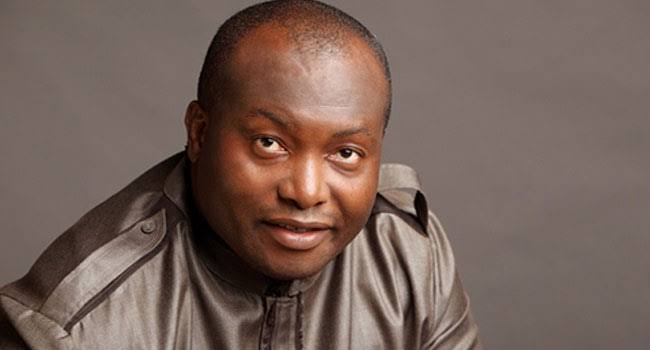
The Senator representing Anambra South in the National Assembly, Ifeanyi Ubah, is dead.
Ubah, who was the Chief Executive Officer of Capital Oil, was said to have died in a hotel in London, the United Kingdom, on Saturday.
He would have been 53 on September 3.
Senate spokesperson, Yemi Adaramodu, confirmed Ubah’s death to our correspondent on Saturday.
He said, “It’s confirmed, but I am sending an official statement soon.”
Ubah, who was re-elected into the 10th Senate under the Young Peoples Party, had last year defected to the All Progressive Congress.
In September 2022, Ubah escaped assassination when he was attacked by gunmen on his way to Nnewi in Enugwu-Ukwu in Anambra State.
Breaking
JUST IN: Edo state Assembly impeaches Deputy Governor Shaibu
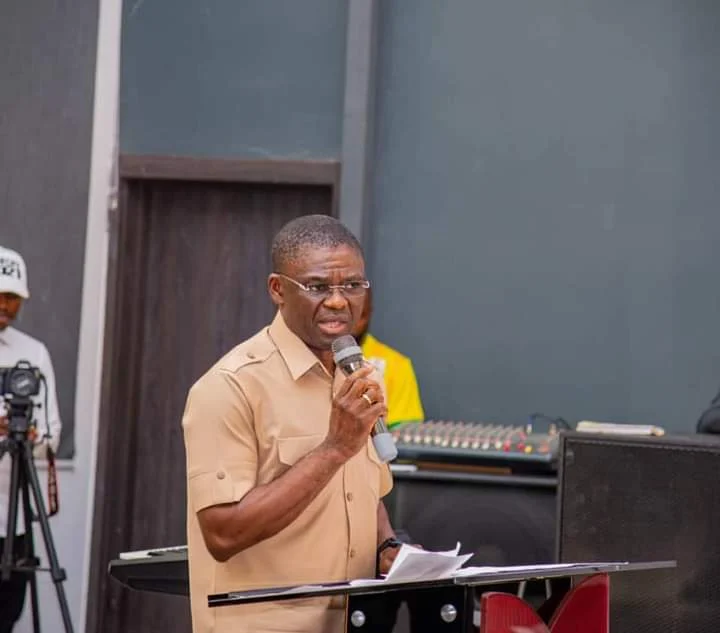
The Edo State House of Assembly, on Monday, impeached the state’s Deputy governor, Comrade Philip Shaibu.
The impeachment followed the adoption of the report of the seven-man investigative panel set up by the Assembly to probe allegations of misconduct against Shaibu.
Breaking
JUST IN: Olubadan of Ibadanland, Oba Lekan Balogun joins ancestors at 81
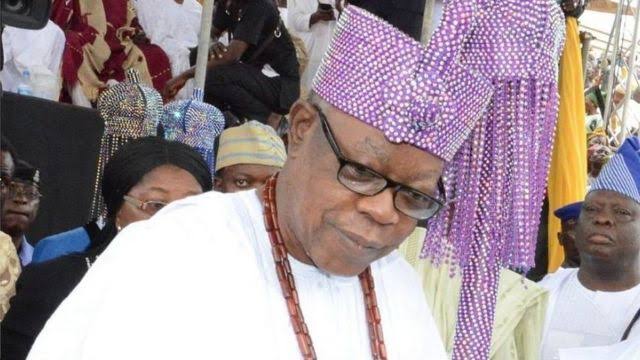
The Olubadan of Ibadanland, Oba Lekan Balogun has joined his ancestors after a brief illness.
He joined his ancestors at the age of 81.
It was gathered that the late monarch was taken to the hospital Wednesday morning having stayed indoor throughout Tuesday on account of slight malaria fever, though, he was hail and hearty on Monday during which he personally received few guests that paid him congratulatory visits on his second year anniversary on that day.
Making this announcement was the Baba-Kekere Olubadan and his younger brother, Dr Kola Balogun in a statement by the Personal Assistant (Media) to the late monarch, Oladele Ogunsola.
According to the statement, Dr. Balogun disclosed that Oba Balogun would be buried at his Aliiwo ancestral home by 4.00pm on Friday according to Islamic rites just as he said that the State Governor Seyi Makinde, though already verbally informed, would be formally notified early in the morning.
The late Olubadan was the first most educated to have emerged as Ibadan monarch, a British trained P.hd holder, a former university lecturer, former member of management staff of Shell British Petroleum, former gubernatorial candidate of the defunct Nigeria People’s Party, NPP, former Senator and a successful business man.
His last official outing was the Olubadan Advisory Council’s meeting which he presided over last Saturday where the decision to derobed Mogaji Akinsola, Olawale Oladoja was taken.
He however, on Tuesday instructed the Ekerin Olubadan, Oba Hamidu Ajibade to midwife a small committee to deliberate on last Friday’s decision on what should be the position of Ibadan Zone in the proposed newly reconstituted Oyo State Council of Obas and Chiefs.
The decision of the small committee was earlier on Thursday ratified by the Olubadan Advisory Council at a meeting presided over by Otun Olubadan and the former governor of Oyo State, High Chief Rashidi Ladoja and was to be taken to the late Oba Balogun for his signature Friday morning so as to meet the deadline for submission to the state Commissioner for Local Government and Chieftaincy Matters later in the day.
The late Olubadan is survived by wives, children and grandchildren.
Announcing the passage of the monarch, Governor Makinde, in a statement, stated that Olubadan, who joined his ancestors late Thursday evening at the University College Hospital, UCH, Ibadan, described him as an epitome of royal excellence and a great achiever, who made great marks on Ibadanland in just a little over two years of his reign.
He expressed his condolences to the Olubadan-in-Council, the Oyo State Traditional Council and the people of Ibadanland and Oyo State, praying to God to grant repose to the soul of the deceased monarch.
Makinde said: “With total submission to the will of God, I announce the passing unto glory of our father, His Imperial Majesty, Oba Dr. Mohood Lekan Balogun, Alli Okunmade II, the 42nd Olubadan of Ibadanland.
“A mighty Iroko has fallen; Oba Dr. Balogun has joined the ancestors.
“In Kabiyesi, Ibadanland had a cosmopolitan and well-experienced Olubadan, who made indelible marks on the sands of history and achieved greatly within a short while.
“On behalf of the Government and good People of Oyo State, I condole with the immediate family of the Oba Dr. Balogun, the Olubadan-in-Council, the Oyo State Traditional Council and the people of Ibadanland.
“It is my prayer that God grants repose to the soul of our late monarch.”
-

 News1 week ago
News1 week ago‘I’ll live with this trauma all my life’ — Tijjani Babangida opens up on losing family in car accident
-

 News6 days ago
News6 days agoNaseni’s Executive Vice Chairman, Khalil Suleiman Halilu, Named 2024 Winner Of Daily Global Newspaper Conference Series Award For Science, Technology, Innovation, And Infrastructure
-

 Relationships1 week ago
Relationships1 week agoFour dating tips for single mum
-

 Relationships4 days ago
Relationships4 days ago‘I wish I met you before the wrong person’ – says Portable’s baby mama, Honey Berry, as she flaunts new lover
-
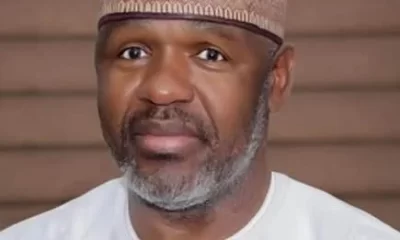
 Politics1 week ago
Politics1 week agoIbrahim Kashim resigns as Bauchi SSG
-

 Entertainment1 week ago
Entertainment1 week agoApostle Femi Lazarus, others top Spotify most streamed podcasts in Nigeria, Kenya, South Africa
-

 News5 days ago
News5 days agoLagos state government shuts Lord’s Chosen Church, businesses across Lekki, VI, others over noise, environmental infractions
-
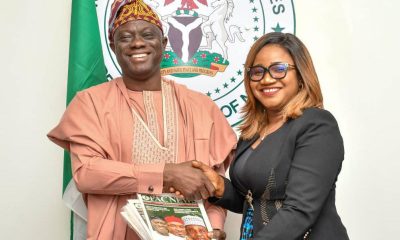
 Politics1 week ago
Politics1 week agoRep seeks increased participation of women in politics



















